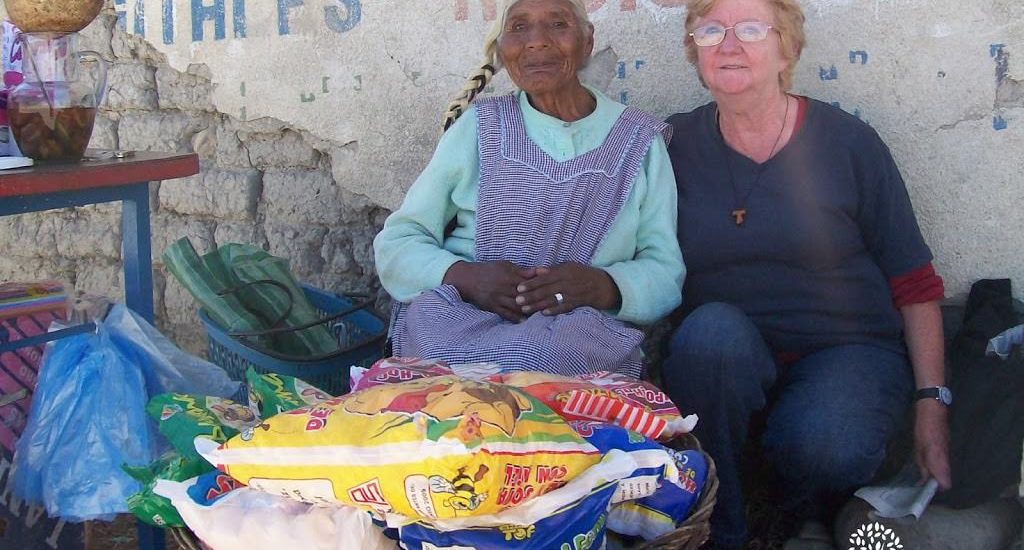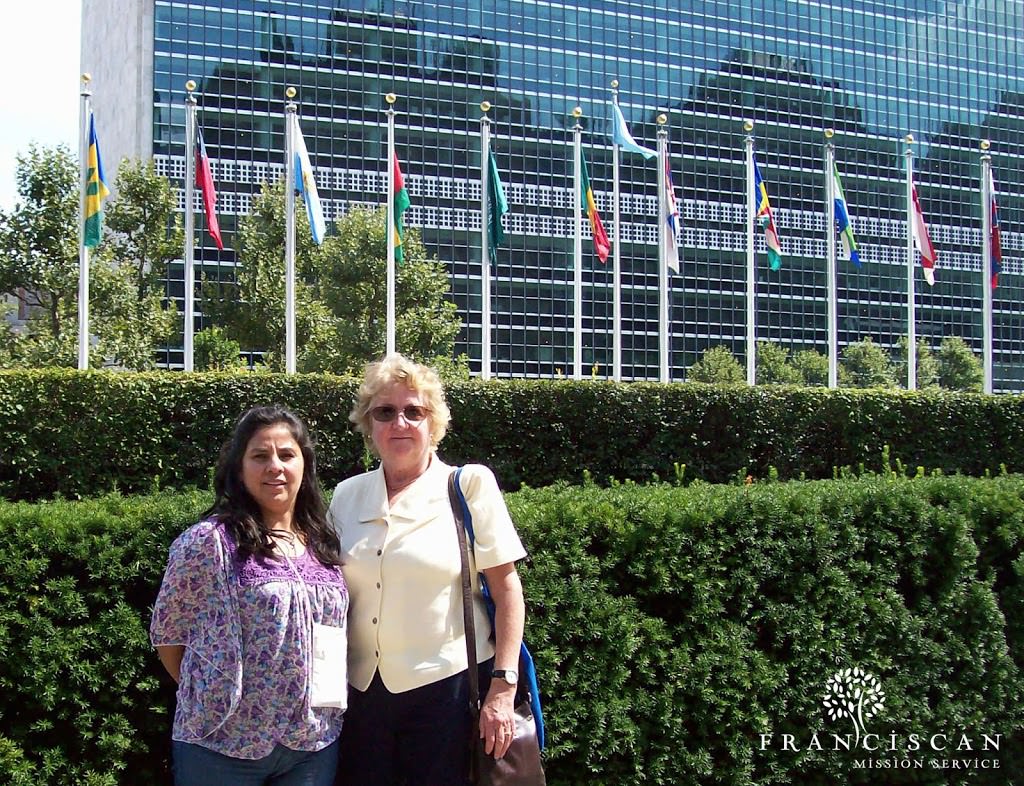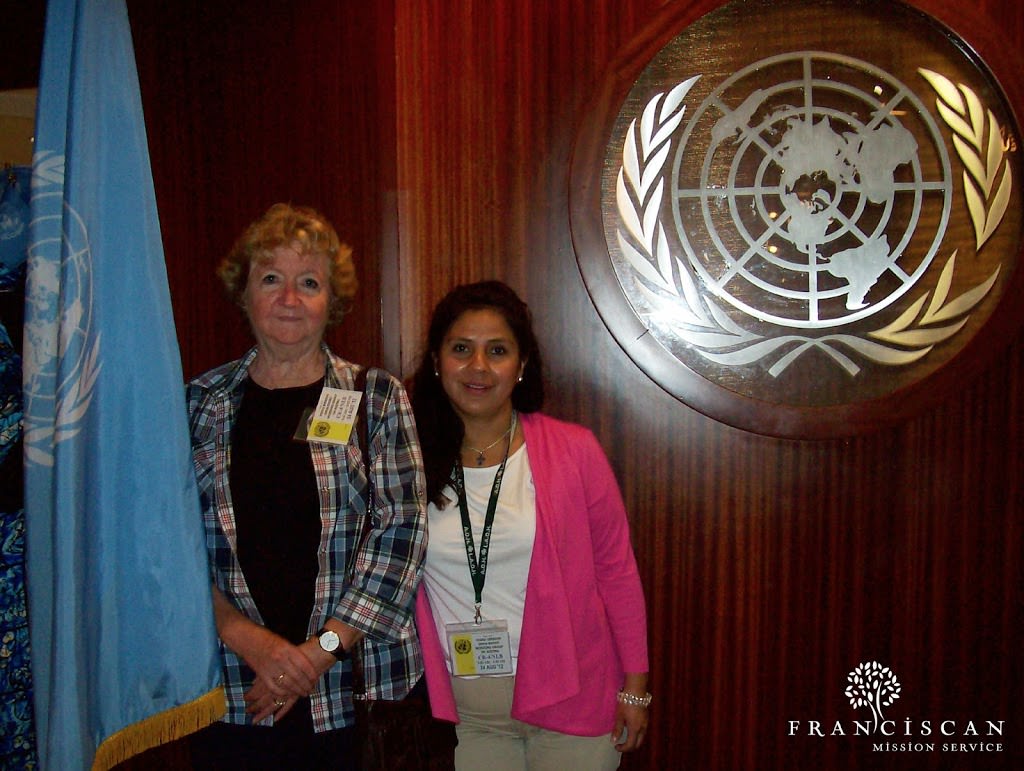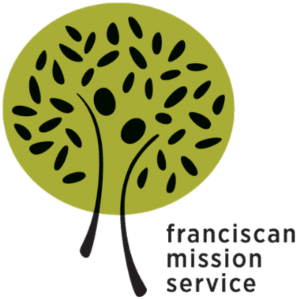Mission Monday: Friends from the Streets of Bolivia to the Seats of the United Nations

While abroad, our lay missioners are invited into the community to share in the local peoples’ lives, culture, and ministries. This leads to strong bonds, so missioners who are able stay in touch with the community and go back to visit.
 |
| Lay missioner Ginny Dachenhausen on mission in Cochabamba, Bolivia from 2007 to 2010. |
Ginny Dachenhausen is one lucky returned missioner who has been able to stay in contact with those whose lives she shared in Cochabamba, Bolivia from 2007 to 2010. Three times Ginny has been back to visit friends and the boys whom she served in her full-time ministry at Casa Nazareth, a home for boys who had been orphaned or abandoned. The boys have moved on from the home, but word goes out when Ginny is in town and those who can return to visit.
One of Ginny’s friends from mission is Rosario Soto. Rosario is the director of a food program sponsored by the Sisters of Loretto, and she invited Ginny to spend her weekends in mission distributing food to 50 to 60 elderly women. Many of these women lived on the streets and begged for food and money, so the volunteers would meet with those facing particular struggles in order to help them directly or refer them to resources such as free medical clinics.
“Rosario and I always dreamed about the day I would be able to show her my country as she had shared her country with me,” Ginny said.
Last August, Ginny was finally able to welcome Rosario to the United States, and even accompanied her to a four-day conference at the United Nations.
While trying to help secure a visa for Rosario, Ginny had reached out to a religious sister in New York City who turned out to be the Franciscan representative to the United Nations. An open-ended session on aging around the world was scheduled, and Rosario would be the perfect delegate. Papers were submitted, letters were written to the embassy, and Rosario had her visa.
At the UN, Rosario was called on to make a special presentation, and Ginny was introduced as her interpreter.
“God intervened and a native Spanish-speaking delegate from Australia volunteered to do the translating,” Ginny said. “There are several people from the Maryknoll Institute who would have found my interpreting comical.”
Rosario gave the presentation and spoke twice at the general meeting. Many delegates spoke of the need for assisting in health programs and keeping seniors on the Internet, but Rosario reminded them not to forget those who have no computers, no programs for decent health care, and no housing options.
“It was surreal to see her on the huge overheard screens and hear her translated into different languages over earphones,” Ginny said. “Her words brought new understanding to not only the needs of the elderly, but also shed light on the particular problems of those in extreme poverty.”
Some of the elderly women Rosario and Ginny had brought food to in Cochabamba were the sole providers for grandchildren whose parents left for a better life and never came back or had stopped sending money.
Younger women needed help, too: There was one who had a handicapped son and a house crumbling down around them, and another women who was pregnant, deaf-mute, and called the streets home. “There are many heart-breaking stories,” Ginny said. “Actually a story for every woman there.”
After Rosario shared such stories at the United Nations conference, Ginny finally was able to share her country with her friend.The visit was educational for both women.
Rosario observed how wonderful it must be to have someone bring mail right to your house, and to have men come to you for your garbage. How comforting it must be to not to have high walls around your house. She also questioned why people say they are “doing laundry” when all you do is put it into a machine that “does your laundry.”
The friends toured New York City and made a visit to returned FMS missioners Lee and Jean Lechtenberg in Cape Cod, Mass., for some whale-watching — an interesting experience for someone from a land-locked country.
“Will Rosario ever be back for another visit? Probably not,” Ginny said. “But we will ever forget? Definitely not. Regular phone calls from her and Casa Nazareth serve as a constant reminder not of the country of Bolivia, but the people there.”
Ginny Dachenhausen continues her lifelong call to mission in New York by teaching CCD and leading “Walking With Purpose,” a year-long course that enables women to know Christ through scripture. She also volunteers twice a week at a hospice where she is the president of its lay fraternity.
Tagged in:



